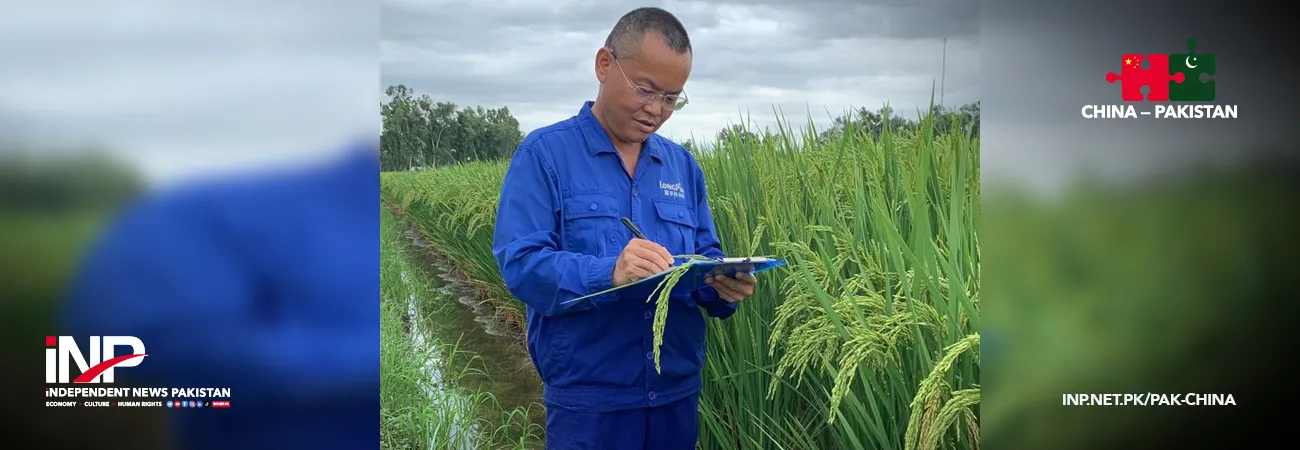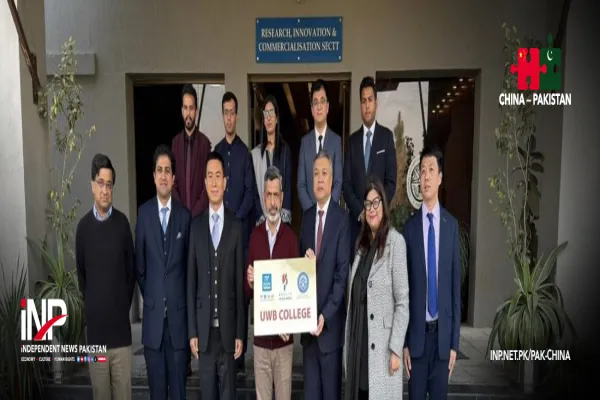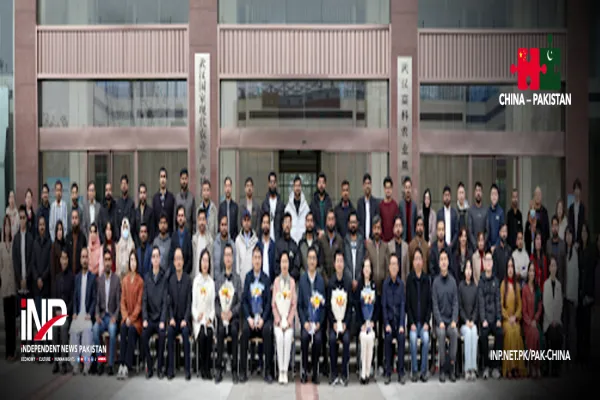i NEWS PAK-CHINA
“The yield of local Basmati rice is about 4.5 tons/hectare, while the yield of hybrid rice varieties we developed can reach up to 12 tons/hectare, as well as the average yield in large areas has also reached 9 tons/hectare. Compared with local varieties, it has increased by up to 50% or 100%.” Long Chunjiu, Director of the Pakistan Breeding Station, Yuan Longping High-tech Agriculture Co., Ltd., wearing work clothes and rubber boots, told reporters, “Agricultural scientific research does not mean big talk in an air-conditioned room. Lack of long-term fieldwork means nothing accomplished.” Local media reported that Yuan Longping High-tech and Guard Agricultural Research & Services (Pvt) Limited have just conducted a successful commercial trial of their 14th hybrid rice variety in Sindh. Compared to the previous varieties, the new one has the potential for more yield; besides, it is resistant to heat and lodging to a higher degree.
According to China Economic Net (CEN), “The new variety has more yield potential. It is also heat tolerant which will help cope with the challenges posed by high temperatures and prolong summers. We trialed it for three years. Now, it will be available for commercial plantation from the next season,” said Momin Ali Malik, Guard’s Seed Division Executive. In 1999, Yuan Longping High-Tech and Pakistan Guard Agricultural Services signed a cooperation agreement to jointly develop hybrid rice in Pakistan. For more than two decades, the two sides have been working closely to promote hybrid rice in Pakistan to bear plump fruit.
“Our center’s breeding area has exceeded 15 acres, meaning it can breed 1-2 leading varieties every year for the Pakistan’s farmer or agriculture. It not only provides adequate food for local people, but also greatly promotes employment for local youth." Long Chunjiu told China Economic Net. Rice, as an essential food variety and export commodity of Pakistan, its importance cannot be overstated. In 2022, more than 2.1 million acres of hybrid rice has been planted in the country. “Our hybrid rice seeds are highly tolerant to various harsh environments, including high temperature, drought and saline-alkali. Not only that, they are also low-cost. Good economic benefits make it highly praised in the local area, and has been widely cultivated in 40% of the rice areas in Sindh, 30% of Balochistan and 3% of Punjab, earning Pakistan USD 300 million in foreign exchange every year,” Long introduced.
Knowing very well of Pakistan’s agricultural conditions such as climate, soil, water resources, and insect pests, “scientific planting methods must be developed based on local climate and hydrological characteristics to truly help local farmers increase production and income,” Long noted. From the initial screening trials of a small number of varieties to today’s large-scale selection, Long has trained more than 50 graduate students, forming an excellent local breeding R&D team and others. As the planting area of hybrid rice in Pakistan continues to expand, the center invites Pakistani employees to visit the experimental base every year for theoretical training and practical guidance.
“Doing only one thing for more than a decade, but I’m the luckiest person.” The hybrid rice fields under the scorching sun have carved thousands of days and nights, as an eyewitness and participant of the Belt and Road Initiative and the China-Pakistan Economic Corridor, Long smiled, with a whirlpool of emotion. “Our great leader Professor Yuan mentioned several times that his first dream was for super rice to grow taller than sorghum, with stems each ear as long as a broom, and each grain as big as a peanut. Then he could actually enjoy the cool underneath the rice crops. His second dream is that hybrid rice can be grown all over the world. The words have always spurred me on. To lead Pakistani partners to create more excellent hybrid rice varieties so that more people can have enough to eat, it is my only wish.”
Credit: Independent News Pakistan (INP) — Pak-China









